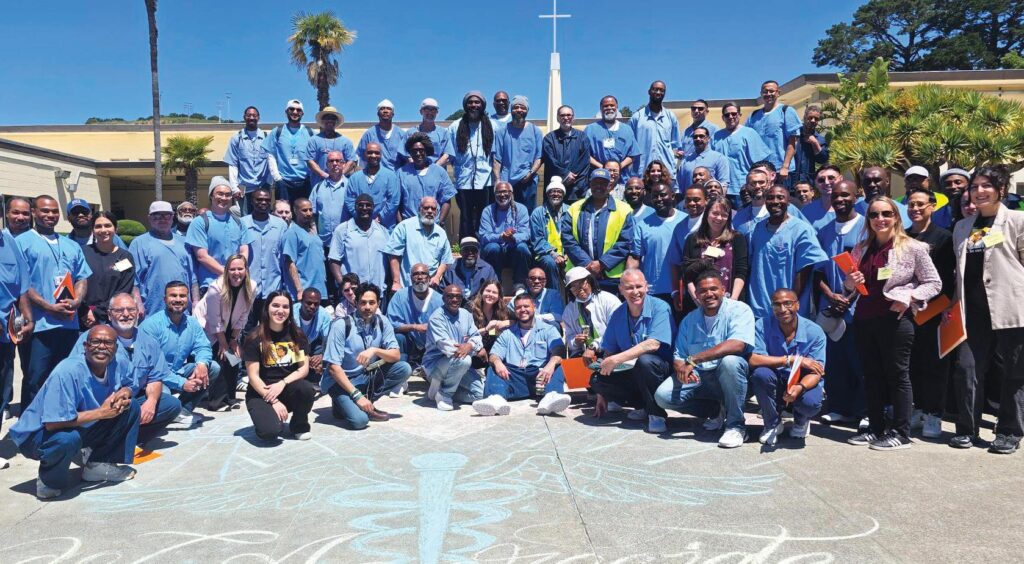
The Civic Engagement Group hosted a Racial Justice Act event in collaboration with the Ella Baker Center for Human Rights.
Panels showed the attendees how to access additional information. According to Morgan Zamora, a Prison Advocacy manager for the Ella Baker Center, events like this have importance because they brought residents up to speed with the Racial Justice Act.
“I think that all the folks inside deserve to have access to information about how the laws actually impacted them,” said Zamora. “I think that when it comes to the RJA [it] is so important because California is the first state that has this law that allows people to receive relief for the racism that they face at this level.”
She also spoke about how others states looked at California to see whether this state could make it work, to see whether this state could challenge racism.
The University of San Francisco panel consisted of Belle Yan, Supervising Attorney at USF’s Racial Justice Clinic, and law students studying with USF’s Elizabeth Romero. They advised to file a 1473 Writ of Habeas Petition with the court if the residents believed they would have claims under the RJA. They encouraged the audience to keep track of their transcripts and to read them repeatedly, marking the pages, and knowing everything that they could about their cases.
According to Elizabeth Lashley-Haynes, an attorney with the Los Angeles Public Defenders Office, success with RJA claims remains low. She said she did not want to paint a negative picture, but in reality, to prevail under RJA remains difficult.
Haynes added that the process of going to court to prove racism remained a tough argument to substantiate, especially since most judges did not feel receptive to the existence of racism in their courtrooms. She also pointed out that statistically, most judges worked as prosecutors, which would add difficulties for them to accept racism in an open court.
Resident Sammie L. Nichols, 35, Civic Engagement Group facilitator talked about the despair of sentencing and its importance. He encouraged everyone to advocate for others even if it does not benefit them. “Look to the person next to you and tell them I will fight for you!” Cheers and applause lit up the room with hope.
Twenty-four hours prior to this event, at the same San Quentin Chapel, San Francisco District Attorney Brooke Jenkins presented a forum comprised of district attorneys from a dozen counties, including Los Angeles District Attorney Nathan Hochman.
Hochman acknowledged feeling “unexpectedly impressed” by the rehabilitation accomplished at San Quentin. Resident Anand Jon Alexander inquired about how the new administration would handle RJA violations if they clearly appeared on the trial records.
Mr. Hochman assured the audience that if the error showed in the transcripts, he would follow the law and not tolerate racism, but if the error turned out as mere conjecture, then he would argue against it.

Resident Allen Crews, 35, said he gained much awareness at the seminar and learned about ways to advocate for himself in applying the RJA to his situation. Crews said he believed he received an excessively long sentence. He added that he felt that race played a factor in his case.
Another resident, Timothy Martel, 71, a nonviolent third-striker incarcerated for 28 years, said, “I was not even going to come until one of my friends woke me up and told me that there were attorneys in here. It is a blessing that they are here today, when I have been denied my petition for resentence under P.C. 600.”
“In an emergency do you see a car accident and walk away? This is how I see RJA,” said Andrea Crider with UCB Criminal Law and Justice and with former SFDA Chesa Boudin’s resentencing project. “The injustice has been to perpetuate the injustice. Behavior change is a long game and part of this act.”